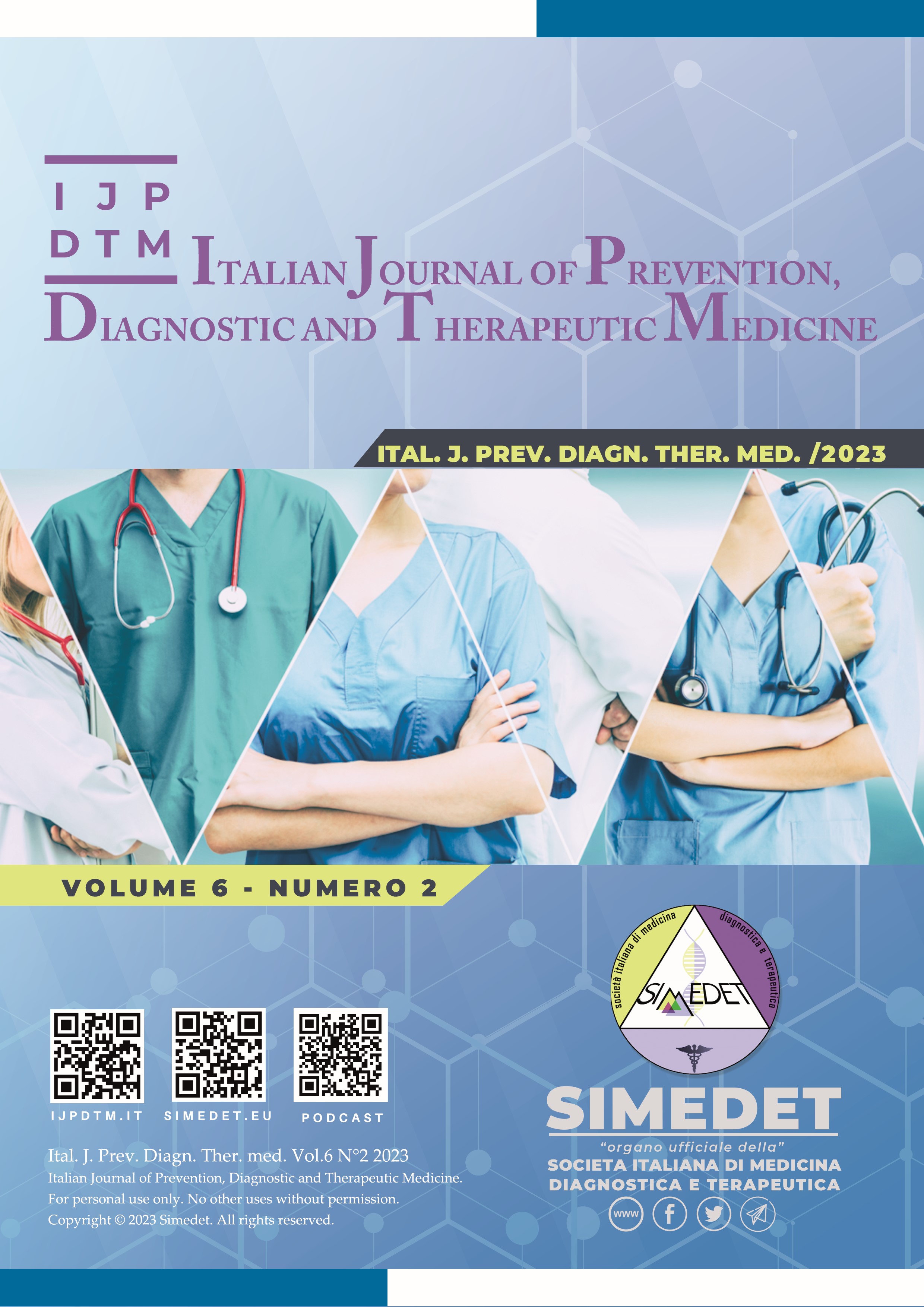A Scoping Review on the Intersection of Artificial Intelligence (AI) and Nursing Opportunities, Challenges, and Future Directions
Main Article Content
Abstract
Artificial intelligence (AI) has witnessed impressive evolution in recent years, resulting in innovative applications across various sectors, including healthcare (Davenport &Kalakota, 2019).
The integration of this technology into nursing practice warrants rigorous explorationso as to improve precision, efficiency, and personalized care. The current literature shows a growing interest in this intersection, with preliminary evidence demonstrating both significant opportunities and notable challenges (Topol, 2019).
Downloads
Article Details

This work is licensed under a Creative Commons Attribution-NonCommercial-NoDerivatives 4.0 International License.
References
- Arksey, H., & O’Malley, L. (2005). Scoping studies: Towards a methodological framework. International Journal of Social Research Methodology, 8(1), 19–32. https://doi.org/10.1080/1364557032000119616.
- Benjamin, R. (2019). Race After Technology: Abolitionist Tools for the New Jim Code. Polity.
- Davenport, T., &Kalakota, R. (2019). The potential for artificial intelligence in healthcare. Future Healthcare Journal, 6(2), 94–98. https://doi.org/10.7861/fhj.2019-0021.
- Elo, S., &Kyngäs, H. (2008). The qualitative content analysis process. Journal of Advanced Nursing, 62(1), 107–115. https://doi.org/10.1111/j.1365-2648.2007.04569.x.
- Floridi, L., & Cowls, J. (2019). A unified framework of five principles for AI in society. Harvard Data Science Review. https://doi.org/10.1162/99608f92.8cd550d1.
- Frizzell, J. D., Liang, L., Schulte, P. J., Yancy, C. W., Heidenreich, P. A., Hernandez, A. F., Bhatt, D. L., Fonarow, G. C., &Laskey, W. K. (2021). Prediction of 30-Day All-Cause Readmissions in Patients Hospitalized for Heart Failure: Comparison of Machine Learning and Other Statistical Approaches. JAMA Cardiology, 2(2), 204-209.
- Gordon, W. J., &Landman, A. (2022). Artificial Intelligence in Health Care: Anticipating Challenges to Ethics, Privacy, and Bias. Perspectives in Biology and Medicine, 65(1), 45-57.
- Kwon, J. M., Lee, Y., Lee, Y., & Lee, S. (2022). An Algorithm Using 12-Lead Electrocardiography to Predict Paroxysmal Atrial Fibrillation. Journal of the American Heart Association, 7(2), e007093.
- Holmes, O., Ayers, S., Duarte, C., &Falzon, L. (2021). AI in mental health: Exploring the attitudes of practitioners towards AI in psychological therapy. Counselling and Psychotherapy Research, 21(4), 752-762.
- Levac, D., Colquhoun, H., & O’Brien, K. K. (2010). Scoping studies: Advancing the methodology. Implementation Science, 5(1), 69. https://doi.org/10.1186/1748-5908-5-69.
- Martinez-Martin, N., Kreitmair, K., & Char, D. (2020). Ethical Issues for Direct-to-Consumer Digital Psychotherapy Apps: Addressing Accountability, Data Protection, and Consent. JMIR Mental Health, 5(2), e32.
- Munn, Z., Peters, M. D., Stern, C., Tufanaru, C., McArthur, A., &Aromataris, E. (2018). Systematic review or scoping review? Guidance for authors when choosing between a systematic or scoping review approach. BMC Medical Research Methodology, 18(1), 143. https://doi.org/10.1186/s12874-018-0611-x.
- Peters, M. D., Godfrey, C. M., Khalil, H., McInerney, P., Parker, D., &Soares, C. B. (2015). Guidance for conducting systematic scoping reviews. International Journal of Evidence-Based Healthcare, 13(3), 141–146. https://doi.org/10.1097/XEB.0000000000000050.
- Reddy, S. (2021). The Impact of Artificial Intelligence - Widespread Job Losses. IEEE Spectrum: Technology, Engineering, and Science News. https://spectrum.ieee.org/job-losses-from-ai-there-are-some-things-we-can-do.
- Rudin, C., & Chen, Y. (2020). AI in Health Care: Anticipating Challenges and Opportunities. Journal of the American Medical Association, 324(18), 1837–1838.
- Saria, S., Rajani, A. K., Gould, J., Koller, D., & Penn, A. A. (2020). Integration of early physiological responses predicts later illness severity in preterm infants. Science Translational Medicine, 2(48), 48ra65-48ra65. https://doi.org/10.1126/scitranslmed.3001304.
- Taylor, R. A., Pare, J. R., Venkatesh, A. K., Mowafi, H., Melnick, E. R., Fleischman, W., & Hall, M. K. (2020). Prediction of In-hospital Mortality in Emergency Department Patients with Sepsis: A Local Big Data–Driven, Machine Learning Approach. Academic Emergency Medicine, 23(3), 269–278.
- Topol, E. J. (2019). High-performance medicine: the convergence of human and artificial intelligence. Nature Medicine, 25(1), 44–56. https://doi.org/10.1038/s41591-018-0300-7.
- Topol, E. (2019). Deep Medicine: How Artificial Intelligence Can Make Healthcare Human Again. Basic Books.
- Wong, Z. Y., Zhou, J., & Zhang, Q. (2021). Artificial intelligence for infectious disease Big Data Analytics. Infection, Genetics and Evolution, 77, 104061.
- Wu, X., Guo, X., Zhang, Z. (2021). The Efficacy of Mobile Health Apps for Self-Management in Patients with Chronic Illness: A Systematic Review and Meta-Analysis. Journal of Telemedicine and Telecare, 27(5), 261-271.

